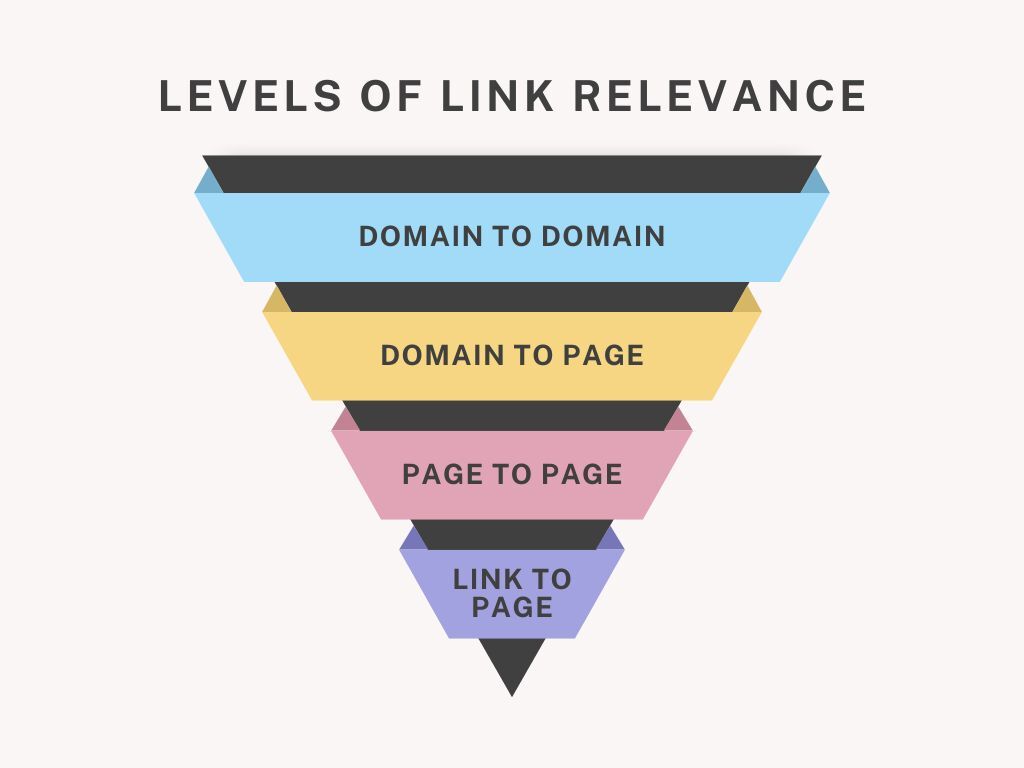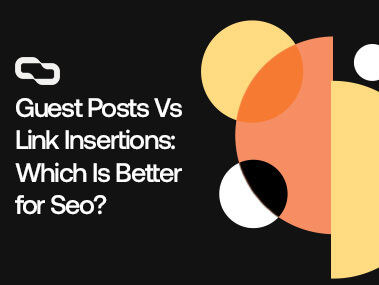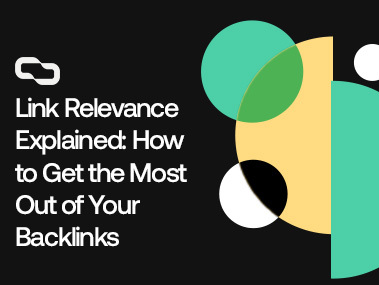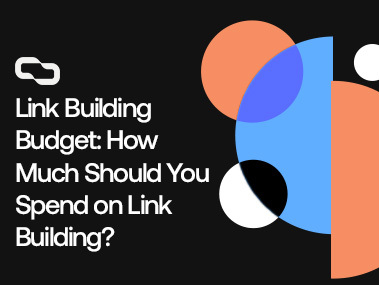Link Relevance Explained: How to Get The Most out of Your Backlinks
What’s the difference between a good backlink and an excellent one?
It's not the domain rating, the number of social media shares, or even the cosmic alignment of the planets –- though that would be quite the link-building strategy, wouldn't it?
I’ve been building high-authority links for a living for more than 5 years now, and I can tell you that it’s all about how relevant the link is to your site.
But what is link relevance really, and why is it that important?
Well, that’s exactly what we’ll cover in this guide.
So without further ado, let’s jump right into it.
Key Takeaways
- Link relevance refers to the connection between the backlink and the domain/page it’s pointing to.
- A link can signal topical relevance, location relevance, or a mix of both.
- Backlinks have 4 relevance levels: domain-to-domain, domain-to-page, page-to-page, and link-to-page.
- Relevant backlinks can help you rank higher and faster on search engine result pages (SERPs.)
- Building many irrelevant links can lead to a manual Google penalty.
- Link relevance is a critical link quality signal, but it can be easily manipulated.
What Is Link Relevance?
Link relevance is simply an indicator that measures the degree of connection between a website link and the page it’s linking to.
This is better explained with an example, so let’s say you have a website about Pet Raccoons for some reason.
Which link would be more relevant: A link from Healthline or Chewy?
Obviously, the answer is Chewy, as the website and its content are highly relevant to your niche (pets.)
Now, I’m not saying that a link from Healthline is bad or irrelevant.
In fact, you can still get some high-relevance signals from Healthline!
But for now, let’s just agree that a link from Chewy would have a higher relevance score than its counterpart, and let’s move on.
So far, we’ve been talking about Topical Relevance, where a link is topically related to the content it's pointing to.
There is, however, another type of link relevance, which is Location Relevance.
If you’re doing local link-building, this is your bread and butter.
This is how you get to the top of Google for terms like Plumber in California or Law Firm in New York.
You mainly get location relevance signals when you get a link from local business directories, local government and public services, local publications, etc.
But you can also get local relevance signals from other websites.
For example, Forbes has a page about the best plumbers in San Diego.
Forbes is by no means a local publication, so a link from it shouldn’t give any location relevance, right?
Well, not really.
There are many levels of link relevancy.
You can get relevance signals from the domain’s niche or location, the page’s content, the anchor text, and many more.
And that’s exactly what we’ll cover in the next section.
It’s a bit technical, but I promise that by the time you end this section, you’ll be a link-building relevance expert.
Levels of Link-Building Relevance

1. Domain-to-Domain Relevance
Domain-to-domain relevancy focuses on the overall connection between 2 relevant sites.
Basically, if both websites are in the same industry or have relevant content, then a link between them is considered domain-to-domain relevant.
Here are some examples of domain-to-domain relevant links:
- A link from The Spruce Pets to a website about Aquarium Fish (Pets)
- A link from Healthline to a website about Paleo Diet (Health)
- A link from Breaking Muscles to a website about Home Gyms (Fitness)
- A link from NerdWallet to a website about Living on a Small Budget (Finance)
2. Domain-to-Page Link Relevancy
domain-to-page relevance focuses on the connection between a web page and the domain it's linking to.
In simple terms, if the linking page’s content is somehow relevant to the overall theme of the linked domain, then that’s a domain-to-page relevant link.
Here are a few examples of domain-to-page relevant links:
- A link from a page on“How to Choose the Perfect Aquarium Fish” to an e-commerce store selling Angelfish.
- A link from a page on “The Health Benefits of Paleo Diet” to a Paleo Recipes blog.
- A link from a page on “Best Gyms in Chicago” to a Chicago Gym.
- A link from a page on “How to Get Out of Debt” to a Debt Settlement Service.
3. Page-to-Page Relevance
Yep, you guessed it right!
page-to-page relevance focuses on the content alignment between the linking and the linked pages.
The more closely related the content is between these two specific pages, the stronger the link’s page-to-page relevance.
Here are a few examples of page-to-page relevant links:
- A link from a page on “Best Places to Visit in Europe” to “The Ultimate France Travel Guide”
- A link from a page on “Best Smartphones Under $500” to “iPhone 11 Review”
- A link from a page on “How to Seal Broken Windows” to “Newborn 250 Caulking Gun”
- A link from a page on “How to Save Money for Kids” to “Best Savings Accounts”
4. Link-to-Page Relevance
This is by far the most important level of link relevance.
It focuses on the relationship between the link itself and the content of both the linking and the linked pages.
Several factors contribute to the strength of link-to-page relevance, such as:
A. Anchor Text
The words used for the hyperlink, known as the anchor text, play a significant role in link-to-page relevance.
The anchor text should accurately describe the linked page's content and represent what users can expect to find when they click on that link.
While properly optimized anchor texts can provide a significant boost to the relevance of the link, misleading or unrelated anchor text can negatively impact the link-to-page relevance and lead to a poor user experience.
B. Surrounding Content
It’s a common industry belief that the words and information near the link provide additional context and reinforce the connection between the linking and linked pages.
I must say that this is just a belief.
No real data is backing this up.
C. Contextual Sense
The link should make contextual sense within the content of the linking page.
It should be naturally integrated into the flow of the content and provide value to the reader.
If the link appears to be inserted solely to manipulate search engines or lacks contextual relevance, it can be seen as less relevant and potentially harmful to your Search Engine Optimization efforts.
Some examples of link-to-page relevant links include:
- A blog post about content marketing strategies including a hyperlink with the anchor text "social media advertising" that points to a relevant in-depth guide or case study specifically focused on social media advertising.
- An article discussing the benefits of meditation including a link with the anchor text "mindfulness apps" that directs to a webpage featuring a curated list of popular mindfulness apps for users to explore and download.
- A news article mentioning a scientific study and linking to the original research paper for further reading, where the anchor text accurately describes the study and connects to the source document.
Why Is Link Relevance Important?
I could mention at least 10 reasons why link-building relevance is important off the top of my head.
But if I’m being honest with you, it all comes down to these 2 reasons:
1. Rank Higher & Faster
Google isn’t as smart as you think.
It can’t read a page and fully understand what it’s about the same way humans do.
Instead, it relies on clues, such as the page’s title, words in the URL, and keyword frequency to understand the topic of the page.
For example, let’s say you have a page on “The 10 Best High Protein Paleo Snacks.”
On the first crawl, Google would know absolutely nothing about it.
It reads the keyword “Paleo” multiple times in the title, URL, headings, and content body, so it thinks the page has something to do with the Paleo Diet.
It reads the words snacks, paleo-friendly, healthy, and sugar-free, so it thinks the page has something to do with Paleo Snacks.
And it keeps going on till it figures out what your page is about.
Now, one of the most important clues that Google relies on is backlinks.
If your “10 Best High Protein Paleo Snacks” page has highly relevant links from other pages that have something to do with the Paleo Diet, then that’s an indicator that your page is relevant to that topic.
As a result, Google would be more comfortable ranking you higher and much faster for that keyword.
Note: Both backlinks and internal links can help you rank higher.
2. Avoid Google Penalties
The second reason why are relevant links important is the Penguin Update.
But before we get into that, let’s first talk about Google’s 3 backlink quality signals.
The first signal is Trust.
Trust signals often come from mentions on what we call “Seed Sites.”
Seed sites are established and reputable websites that are manually curated by Google for their high-quality content.
Think of super mega domain authority sites like the New York Times, Forbes, The Guardian, IBM, Healthline, etc.
When your website receives inbound links from these seed sites, it signals to search engines that your content is trustworthy and carries link authority within the respective field.
Thus, Google would be more likely to consider you as an authority in this niche and reward you with their precious top positions.
The second signal is Power or what link builders call “juice.”
The concept of link juice is pretty straightforward.
Think of your page as a container, backlinks as faucets pumping juice into the container, and outbound links as faucets funneling juice out of the container.
The more high-quality links you build to your page, the more juice it’ll have, and the higher it’ll rank on the SERPs.
Yep, it’s that simple.
Back in the day, black hat SEOs were playing the algorithm pretty damn well.
They utilized the fact that the algorithm relies heavily on how much juice your page has and they built a shit ton of links to their pages, no matter how relevant these links are.
For example, let’s say I was trying to rank for “best protein powder.”
I’d build links from any page that has enough juice.
A page titled “How to Groom Your Pet” with 40 backlinks?
Yep, that’s good.
A page on “Automatic vs Mechanical Watches” with 100 backlinks?
Perfect! That sure would help me get the top spot.
And believe it or not, this actually worked!
Until it didn’t.
Enters the Penguin Core Update
We lost so many loyal soldiers in the battle of the 24th of April 2012. The best of the best.
That day, entire portfolios were annihilated. Families were devastated. Lives were shattered and dreams were dissipated.
All of that is because Google added more weight in their algorithm to the third and last backlink quality signal, relevance.
And it actually makes a lot of sense!
The whole idea of links is authors like your content so much that they want to share it with their audience.
It’s all about improving user experience.
So if you’re reading an article about cars, how would a link to the best protein powders improve your experience?
It certainly doesn’t, and Google knows that.
Nowadays, you can’t build irrelevant backlinks and expect to rank.
In fact, if you build many irrelevant links, you’ll get a manual penalty.
And these types of penalties are really hard to resolve.
So how would you get the link juice you desperately need without pissing off the mighty Google?
By building powerful, yet highly relevant links.
And I’ll show you how to find those links in a minute.
But first, let’s get into how to check link relevance.
How to Check for Link Relevance
1. How to Check Backlink Relevance Manually
A website about gardening equipment linking to a fishing blog!
Sniff Sniff Something fishy going on - pun definitely not intended.
This link obviously doesn’t have domain-to-domain relevance. I need to dive deeper.
The page is about “Whether You Can Use Garden Worms for Fishing,” interesting!
This means that the link is domain-to-page relevant, what’s next?
The link points to a page on “How to Bait a Hook using Live Worm” with the relevant anchor text “hook the worm gently.”
This means that the link is both page-to-page and link-to-page relevant.
Never mind, this link is highly relevant.
That’s called the smell test, and it’s the most accurate way to check a link's relevance.
This approach, however, is very time-consuming.
You can’t possibly check thousands of backlinks this way.
Luckily, I found a way to bulk-check all your backlinks with a click of a button.
2. How to Bulk Check Backlinks Relevance
- Connect your website to Ahrefs’ Free Website Checker.
- Wait for the site audit to finish, then click on Backlinks to open the Backlinks report.
- Set the filter to Dofollow, as we only care about those links.
- Click on Export to download a list of all your backlinks.
- Import the CSV file into Google Sheets or Excel.
- Delete all columns except:
- Referring page title
- Target URL
- Left context
- Anchor
- Right context
- Go to ChatGPT and paste this prompt
- Please rate the relevancy of each backlink for the provided website/page based on the following criteria: 1) domain-to-domain relevance, 2) domain-to-page relevance, 3) page-to-page relevance, and 4) link-to-page relevance. Evaluate the backlinks using the website/page name, the website niche or the page title, and the list of backlinks with the title of each linking page, anchor text used, and surrounding text. Provide a rating out of 10 for each backlink. Keep in mind the definitions of each type of relevance when assessing the backlinks.
- Copy and paste the sheet content into ChatGPT
- Let AI do the work for you!
Link Relevance Optimization Mastery
The best thing about relevance is that it’s very easy to fake.
You can make virtually any link relevant to your site by just choosing the right post topic.
Here is how it’s done.
Let’s say I’m an Electrician from Ohio, how would I make a link from a crypto-related website relevant?
Well, it’s pretty easy actually.
Just write an article that has something to do with electricity, crypto, and Ohio.
For example, you can write a page on “How Much Electricity Does It Take to Mine 1 Bitcoin in Ohio” or “Is Mining Ethereum Profitable in Ohio.”
This way, a link from this page would be both domain-to-page and page-to-page relevant.
Not only that but you can also check the link-to-page relevance box by optimizing your anchor text.
If you’re trying to rank for Electrician Ohio, then you can use this phrase or a variation of it as the anchor text to make the link even more relevant.
Now, you have to be super careful when choosing your anchor text.
Overoptimizing your anchors can make your backlink profile look unnatural in the eyes of Google, and this might trigger a manual penalty.
How to properly optimize your anchor text?
Well, that’s a topic for another day, but for now, you can watch this awesome video by Matt Diggity.
How to Get Powerful But Relevant Links
1. Manual Prospecting
You can find plenty of relevant link opportunities using Google search operators.
Search operators are special commands that can refine and narrow down your search to find exactly what you’re looking for.
Some of the popular commands used in link building include:
- [intext: “Keyword”]: This command allows you to find pages where the exact keyword appears in the body text. For example, searching for [intext: "healthy recipes"] will show you all the pages that contain the term "healthy recipes" within their content.
- [intitle: “Keyword”]: This one allows you to search for pages with specific words in their title. For example, searching for [intitle: "digital marketing tips"] will show pages with "digital marketing tips" in their title.
- [inurl: “Keyword”]: The inurl command allows you to find pages with the specified keyword in their URL. For instance, searching for [inurl: "blogging tips"] will display pages with "blogging tips" in their URL.
Agency Tip 1: If you want to search for only the pages that have the exact match of your keyword, add “all” before your operator. For example, if you only want to find pages that have all the words “best hiking boots for flat feet”, use the operator “allintext:” instead of “intext.”
Agency Tip 2: You can use the asterisk operator (*) as a placeholder. For example, you can search using [intitle: "best * shoes for kids"] and you’ll find plenty of pages that are relevant to kid's shoes, such as “winter shoes for kids,” “basketball shoes for kids”, etc. This isn’t only good for link building, but also keyword research.
I must say that I’m not a huge fan of this approach myself.
Why? For many reasons.
First, it’s extremely time-consuming.
You have to spend MANY hours searching, outreaching, and curating those links.
Even if you had a good response rate, 99.9999% of them will ask for money.
So instead of just buying links right away, you’ll end up spending countless hours + money for the placement.
The second reason why I don’t like this approach, especially for beginners, is that you’ll often end up on link farms.
Link farms are websites created for the sole purpose of selling links.
Most of these sites will have more than 1,000 pages all of which are guest posts.
Now, this is really bad because first, a link from them won’t give you any link juice, so it’s basically a waste of money.
Second, those link farms are often flagged as low quality, and having many of these unnatural links might get you into trouble.
2. Ahrefs Content Explorer
Ahrefs has a huge database of over 11 billion pages that you can use to your advantage.
It’s one of the best ways to find relevant link opportunities right now, and it’s pretty easy to use too.
Just log into your Ahrefs account, navigate to the Content Explorer tab, type in your niche’s seed phrase, and hit the Search button.
This will show you a report of super popular content in your niche that is pulling traffic, social shares, and plenty of juicy backlinks.
Now, you can either email these websites asking for a guest post or write a better version of this article yourself and hijack their links!
Personally, I lean towards the second approach, but I understand that it can be a little hard for beginners, so try to do a mix of both if you can.
Do you know what I also like to do?
Ask for a niche edit.
Most of these pages have plenty of backlinks, thus, a link from them would give me a huge juice boost, and it’s a pretty relevant link, so jackpot!
There are, however, two drawbacks to this method.
First, it’s not free. Ahrefs Site Explorer is only available for Standard and Advanced Ahrefs subscribers, so that’s a few hundred dollars to just use the tool.
Second, this approach has an extremely low response rate.
We’re talking 8.5% if you’re lucky.
So is it worth it?
Well, it’s definitely worth a try, in my opinion.
3. Steal Your Competitors Links
This is just my favorite technique.
Just plug your competitors into the ahrefs Link Intersect tool, and export a list of all the websites that link to your competitors but not you.
Use an email outreach tool like Gmass, and that’s it.
It really doesn’t get easier than that!
4. Write Killer Content
Having very good content can actually get you some organic backlinks.
But I won’t lie to you, this doesn’t happen very often.
You must have absolutely astonishing content that is way better than the competition to have any success at all.
Think of something like this guide compared to our competitors ehm they suck ehm.
Actually, even this guide didn’t earn many backlinks.
The type of posts that often earn natural links are case studies with original data.
So if you can do something like that, it might be worth the shot.
5. Hire An Expert Link Builder
This is the part where I finally get to pitch my service.
After all, I didn’t put all that effort into creating this awesome guide for nothing!
Just kidding, I enjoy creating content (No, I don’t.)
But in all seriousness, we have one of the largest inventories in the world with over 200,000 sites.
We use multiple outreach link-building strategies and work with websites in almost every industry.
From gambling and CBD to plumping and roof fixing.
The best part is: There are no setup fees or long-term commitments.
You join the service for free and leave whenever you want. No questions asked.
Schedule a free call now and let’s discuss how we can help you get more organic traffic.
Find out your exact cost of ranking for your dream keyword
Let’s get you ranking now
If you want the team at Get Me Links to help you get more traffic



